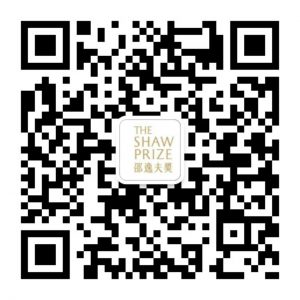I was born in Athens, Greece in May, 1953. I was the first child of two girls, born 1.5 years apart. Ours was a middle-class family, well-educated and with comfortable income. My father, Nicholas, was a mathematician born in a small village in Peloponnese. He was the first from his five siblings to leave the village for the capital. After he graduated from the University, he started a tutoring school in mathematics for high school students, at all levels. My mother, Theofano, was born in Athens in a middle-class family. She studied Economics and worked at the Finance Ministry; she was pretty independent and emancipated for the times. They both worked long hours, and that meant that the Athens grandparents took care of the children. As the first-born, I enjoyed full attention and care. Grandpa took it upon himself to teach me reading very early, three to four years old. He succeeded; I could read but I had no clue what it all meant.
I attended grammar school in my neighbourhood and six years later, I left with excellent memorizing ability and a strong affinity to natural sciences and rudimentary math. High school was female only, very conservative, and high performance oriented; our week had six working days until I graduated. My best classes were physics and math; the first because the teacher was the best I ever had in all my education years, and the second because there was no way I would fail as a mathematician’s daughter… I finished high school at the top of the class and passed the university entrance exams for Physics, ranking among the top ten. A year later a military junta took over in Greece….and our student years changed dramatically. I graduated with a Physics Bachelor’s degree in 1975, but my real goal was to study Astrophysics, and that meant going abroad.
I started with UK — I knew the language very well and loved the country, which I had visited as a student; I also applied to Germany as I had studied German. I got accepted by the University of Sussex for an MSc and the Max Planck Institute for Extraterrestrial Physics (MPE) for a PhD, with the Technical University of Munich as the degree-awarding institution. I decided to do both and my parents agreed to support me in the first year. I spent nine memorable months in Brighton in classes and working with Peter Wehinger on the Na lines from Io (Jupiter’s moon). These were very austere years, living on a very tight budget… and yet it was one of the best times in my life. My most cherished memory was during our two weeks at Herstmonceux, attending classes at the Royal Greenwich Observatory and hoping that the rain would stop, so that we could observe. It did not and I still remember the pub where we all spent our evenings waiting for the sky to clear.
Next stop, Munich. I joined the gamma-ray group and started studying Gamma Ray Bursts in preparation for my thesis project; my advisor was Klaus Pinkau. MPE sent me twice to NASA’s GSFC to train on the GRB data analysis from the ISEE-3 mission; thus started my long-term love affair with NASA, which culminated amicably almost thirty-eight years later. MPE was a transformative period in my life. I owe my colleagues and friends there a lot of gratitude for taking me under their wings and letting me grow into a professional. I graduated in 1981 and returned to Greece as a lecturer at the University of Athens (UoA). During my twelve years at UoA, I spent all summers and sabbaticals in the USA. In 1991, I was invited by Jerry Fishman to spend my second sabbatical at NASA’s MSFC working with data from Burst and Transient Source Experiment on Compton Gamma-Ray Observatory; after two years I retired from UoA. In 2002, I became a US citizen and was hired as a civil servant; I retired as a Senior Scientist for High-Energy Astrophysics on January 31, 2015. While at MSFC, I worked on GRBs, establishing their first phenomenological classification based on durations and spectra, and on Soft Gamma Repeaters, establishing their nature as magnetars with RXTE data. This was the most productive, stressful, and rewarding period in my life.
I joined George Washington University Physics Department in February 2015. Our Astrogroup has by now enjoyed recognition with a steadily increasing number of graduate student applications. In 2020, I became the department chair for a three-year tenure.
During all these years, I worked in large international collaborations and with individual researchers. I worked with and mentored students, postdoctoral fellows and colleagues. My work was and is my life and joy and my colleagues are my extended family. The Shaw Prize arrived at the 40th year of my career and I cannot thank the Shaw Prize Foundation enough for this formidable award and their recognition of my life’s work.
28 October 2021 Hong Kong
